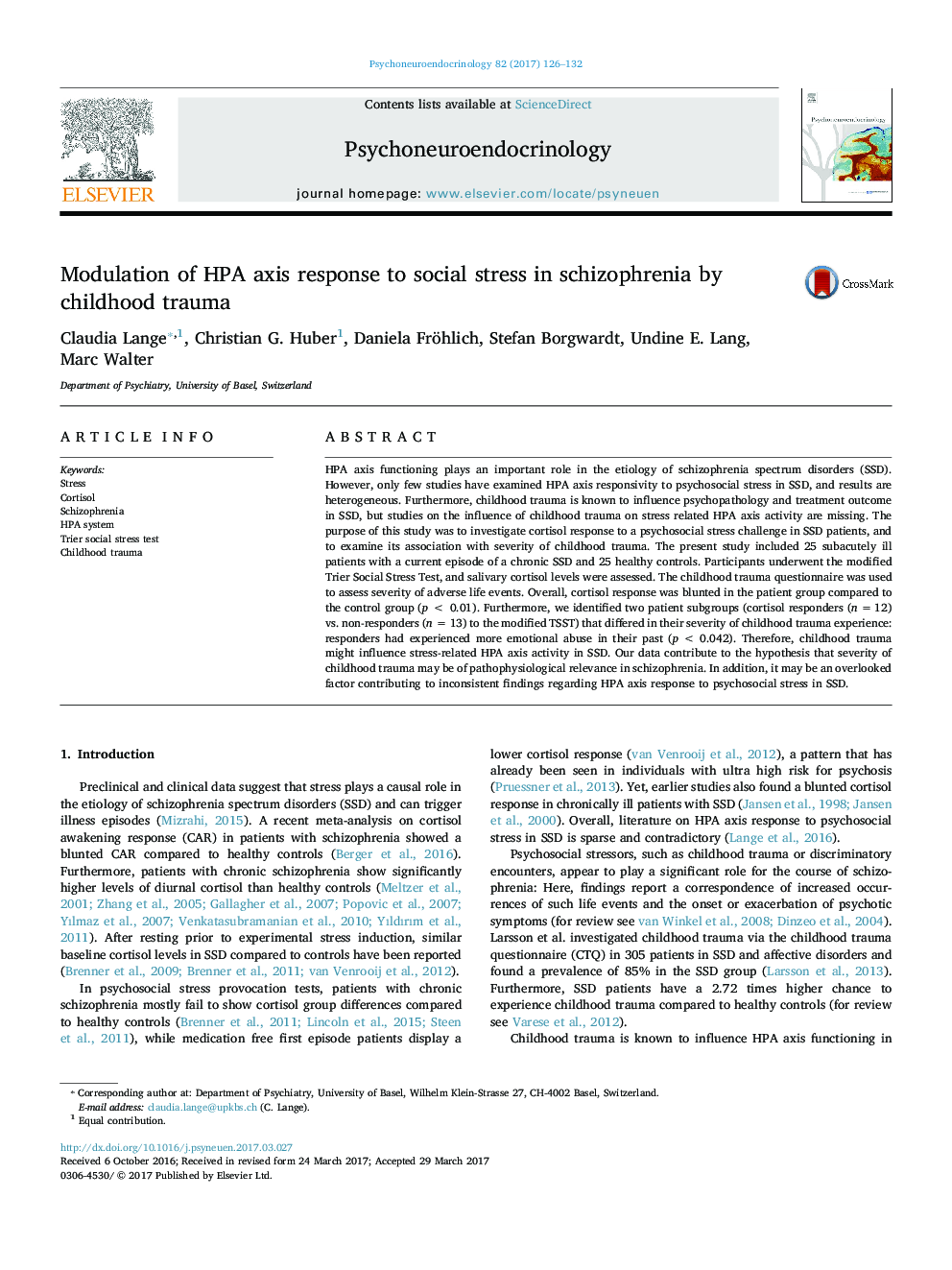| Article ID | Journal | Published Year | Pages | File Type |
|---|---|---|---|---|
| 4934369 | Psychoneuroendocrinology | 2017 | 7 Pages |
Abstract
HPA axis functioning plays an important role in the etiology of schizophrenia spectrum disorders (SSD). However, only few studies have examined HPA axis responsivity to psychosocial stress in SSD, and results are heterogeneous. Furthermore, childhood trauma is known to influence psychopathology and treatment outcome in SSD, but studies on the influence of childhood trauma on stress related HPA axis activity are missing. The purpose of this study was to investigate cortisol response to a psychosocial stress challenge in SSD patients, and to examine its association with severity of childhood trauma. The present study included 25 subacutely ill patients with a current episode of a chronic SSD and 25 healthy controls. Participants underwent the modified Trier Social Stress Test, and salivary cortisol levels were assessed. The childhood trauma questionnaire was used to assess severity of adverse life events. Overall, cortisol response was blunted in the patient group compared to the control group (p < 0.01). Furthermore, we identified two patient subgroups (cortisol responders (n = 12) vs. non-responders (n = 13) to the modified TSST) that differed in their severity of childhood trauma experience: responders had experienced more emotional abuse in their past (p < 0.042). Therefore, childhood trauma might influence stress-related HPA axis activity in SSD. Our data contribute to the hypothesis that severity of childhood trauma may be of pathophysiological relevance in schizophrenia. In addition, it may be an overlooked factor contributing to inconsistent findings regarding HPA axis response to psychosocial stress in SSD.
Related Topics
Life Sciences
Biochemistry, Genetics and Molecular Biology
Endocrinology
Authors
Claudia Lange, Christian G. Huber, Daniela Fröhlich, Stefan Borgwardt, Undine E. Lang, Marc Walter,
